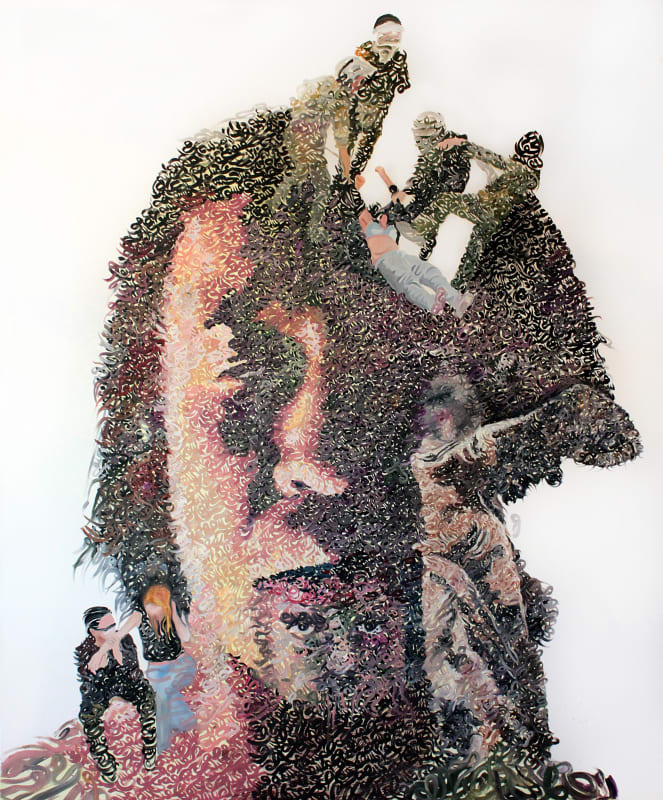Tabari Artspace Art Gallery presented the solo exhibition of Moroccan visual artist, Zakaria Ramhani.
The exhibition titled Connotation aptly captures the intricate connection between images and words. Defining connotation is challenging as it encompasses the elements of a sign beyond its literal meaning, extending into a broader sense.
In this exhibition, you can find signs or words that carry the denoted meaning, which can be found in the dictionary. Some of the portraits of public figures or popular icons displayed in this exhibition are simple reproductions sourced from the internet, rather than traditional portraits. Instead of painting from a live model, the artist adopts a more image-based approach, focusing on the relationship between the subject and calligraphy. This dynamic gives rise to tension, humour, and cynicism. The text forming the image deliberately appears unreadable, while the presence of the Arabic language introduces ambiguity, placing the image in a new context and opening up multiple interpretations.
Continuously exploring new themes, the artist has delved into the study of networks and social communication, particularly the phenomenon of "memes." These captivating images serve as a blank canvas where text can be added, allowing for a personal connection to the emotions or sentiments conveyed by the image. This connection presents infinite possibilities.
One noteworthy piece in the exhibition is the triptych titled "I'm Sorry Father," which creates a visual illusion known as "trompe-l'oeil." At first glance, the artwork appears as a collage, composed of fragmented elements. However, upon closer inspection, viewers realize that the three children depicted in the piece are personalities historically associated with terror, fear, and abuse of power: Saddam, Hitler, and Bin Laden. The combination of these distinct ideas and images offers a vast expanse for interpretation and perception.
